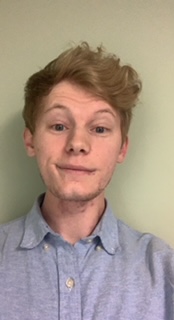Spring 2022 Symposium of Student Scholars Live Blog
KENNESAW, Ga. (April 19, 2022) — The Office of Undergraduate Research at Kennesaw State University is hosting its spring edition of the Symposium of Student Scholars today, April 19th, a half-day university-wide conference in which undergraduate and graduate researchers present their projects. The hybrid event will take place in-person on the Kennesaw campus, online through Microsoft Teams, and as pre-recorded videos posted online in Digital Commons. Click here for more information on the symposium schedule and program.
This live blog, to be updated throughout the day, gives a snapshot of the variety of disciplines represented and the research journeys undertaken by KSU undergraduate and graduate students.
– Meagan Lowney, Renee Hudson, Dreanna Simmons
04/19/2022, 10:00 AM
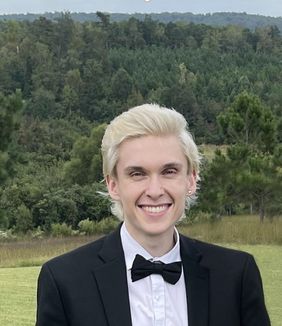
Tran, an undergraduate student studying elementary education, and Blakely, a graduate
student in the Master of Arts and Professional Writing program, are grateful for the
cross-disciplinary research opportunity.
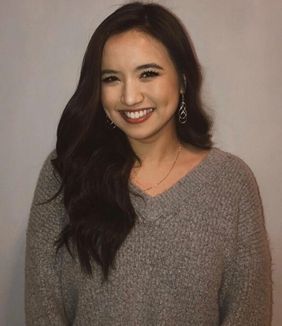
“We feel our research serves as a valuable introduction to the significance of supplemental
instruction in the larger educative field,” they said. “Ideally, this research will
prompt the expansion of such programs at the college level and urge more education
students to seek pre-service employment as supplemental instructors.”
04/19/2022, 10:40 AM
Connor Embleau’s passion for helping the community and the environment, partnered with his knowledge in structural engineering, guided his research in developing a cost-efficient bridge scour health monitoring system using commercial sensors. Embleau, a senior civil engineering major, and his research team are using a unique method to study bridge health due to safety concerns of traditional methods. “We are hoping that by using vibration-based techniques, the results of this research could potentially save lives and have a major real-world impact within structural engineering,” said Embleau.
Embleau is looking to the future and is curious about the different routes he can pursue as an engineer when he graduates. Through his research, he looks forward to continue learning about this topic by finding guidance from his mentors. “My experience with my mentor was exciting and filled with a lot of insight into engineering,” Embleau said. “I enjoyed deep diving into the research topic, and I believe the change in perspective added to my ability to take on a topic.”
04/19/2022, 11:00 AM

William Anderson, a sophomore studying biology, became interested in his research project to assist people in becoming healthier. “I get to help make a difference in the world by assisting in combating the increasing levels of obesity in the United States,” explained Anderson. He conducted his studies by analyzing the effects of walking a certain number of steps per day onweight loss over a 6-month period.
Though this is Anderson’s first time presenting his research, his experience has been positive due to the guidance he has received from Director of Exercise Physiology and Biomechanics Labs Bob Buresh. Buresh assisted Anderson not only with his research, but also in the development of his writing skills through the creation of this abstract. “I intend to continue working on this research project and hopefully gain more information and results and possibly gain even more participants willing to do this research,” Anderson said.
04/19/2022, 11:25 AM

“I am presenting research on how family caregivers of people with Alzheimer’s or Dementia related diseases utilize social media groups,” said Evans. “This research project interested me because I have had several family friends who have been caregivers for a person with Alzheimer’s.” Adding, “Being a caregiver can be very exhausting, and social media platforms give thesecaregivers a place to express their exhaustion, thoughts, rants, and more. I wanted to explore how these caregivers were utilizing these support groups in depth and see if there were any ways to improve caregiver support.”
Evans’ wants to continue her research with mentor, Mary Dioise Ramos, and the two intend on publishing a manuscript based on this research in a nursing journal.
04/19/2022, 12:35 PM
Shota Yasuda, a lab assistant for Coles College of Business’ new 3D lab, has been assisting in
the implementation of 3D printing activities into core business classes.
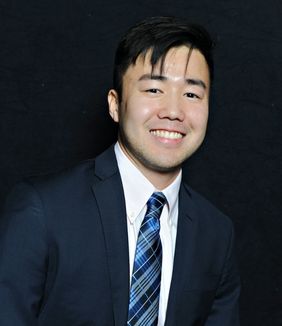
As a senior studying information systems, Yasuda’s goal is to provide students with a positive initial experience so that students want to continue exploring and learning about emerging technologies. Yasuda also recently presented at the Association for Information Systems 2022 Student Chapter Leadership Conference on April 9th.
“My experience working with Dr. Dominic Thomas and the rest of the team has been incredibly positive. I am grateful for the mentorship and extra learning that Dr. Thomas has provided me,” said Yasuda. “My team, the other students working in the lab, were easy to work with. Overall, I am very satisfied with the experience I had the privilege of having.”
04/19/2022, 1:50 PM
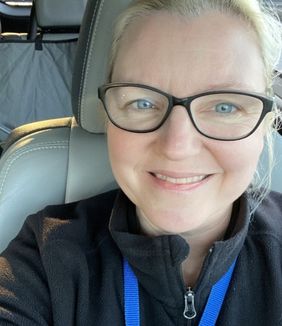
As a non-traditional student, Truesdell already has two degrees under her belt, but
she returned to academia to research animal behavior and cognition. When she found
Dr. Sarah Guindre-Parker’s lab on bird research, she knew it was a perfect fit.
Truesdell has found keeping up with technology the most challenging aspect of returning to school after 20 years in the workforce. Connecting with students, however, has been surprisingly easy. She advises fellow students to give themselves time to enjoy the full undergraduate experience. “Join clubs, attend events, and participate in research,” Cherie said. “These are the experiences you'll remember.”
04/19/2022, 3:05 PM
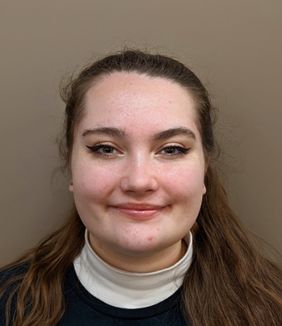
Wilgus credits her mentor, Valerie Dibble, for making the process of her first time presenting research less intimidating than she had initially anticipated. “Valerie was so incredibly supportive and inspiring throughout the process, especially during my presentations,” Wilgus said. "She coached me through it and helped make this research project an amazing experience.”
With Dibble’s help, Wilgus overcame her nerves about presenting, and she is now very excited to display her findings during the symposium.
04/19/2022, 3:28 PM

This area of research is very important to Reinhardt as his family history includes several close relatives diagnosed with Alzheimer’s, including his own father. For Reinhardt, this topic is more than just a project, but rather a potential solution to a problem he faces “every single day.”
Mohammad Halim, assistant professor of chemistry and biochemistry, has been an invaluable mentor to Reinhardt in his research process. “Dr. Halim shows an exuberant attitude towards research every day he walks into the lab,” Reinhardt said. “He makes the more difficult parts of research easier to handle with his attitude and determination.”
04/19/2022, 3:40 PM

Donovan McGregor, a freshman majoring in computer science, is conducting research involving the use of Machine Learning (ML) to organize and identify neurological disorders. “The project specifically studies Dyslexia as the neurological condition and the Machine Learning model identifies the Dyslexic recipients from data in a research paper that uses a game to find patterns for Dyslexia,” McGregor states.
His interest in Artificial Intelligence (AI) is what led him to pursue this research project with the goal of understanding the data processing and models of ML for himself. Moreover, this project is meant to act as a gateway for people studying neuroscience about the use of AIs to help diagnose and identify neurological conditions, as well as provide more information on this subject.
“This is my first research project, and the most difficult aspect of it was the learning curve that was presented; however, I appreciate the learning experience throughout the project that I would not be able to receive due to being a freshman,” McGregor states.
04/19/2022, 3:47 PM
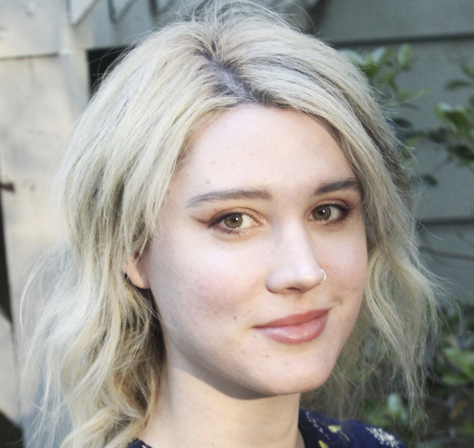
Lauren Mitchell is a recent KSU graduate with dual degree in anthropology and psychology. Her project examines the social connection between humans and dogs by investigating how humans interpret various canine facial expressions. She intends to eventually publish her findings, as they would be valuable to existing literature on dog domestication and behavior.
Mitchell feels that human evolution can be better understood by researching the human-dog connection, a topic she feels strongly about.
“I've always been interested in animals and later on in the connection between behavior
and morphology,” she said. “The domestication process is an excellent example of how
selection for behavior can influence morphology. This is what began my interest in
dog facial expressions.”







